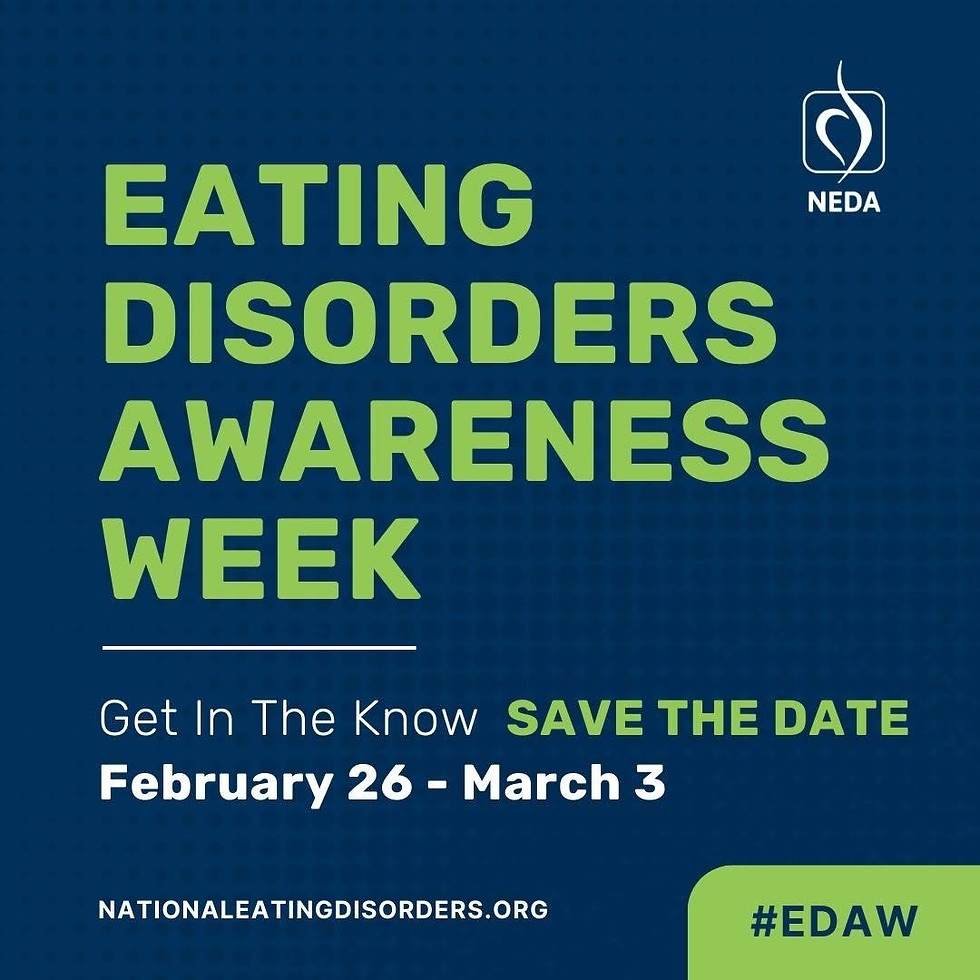
Evolution of Eating Disorders
- Chetna Chauhan
- Apr 19, 2023
- 3 min read
Updated: Nov 27, 2023
Eating disorders have a complex history that is shaped by social and cultural factors. Today, they are recognized as serious mental illnesses that require treatment. Still, in India, understanding of the prevalence of eating disorders and the need for intervention is very low. To understand these complex mental illnesses, it is also important to look at their history.
Here are five facts to get you started:

There are references of eating disorders in ancient texts and artworks from around the world. For example, the ancient Greeks and Romans described anorexia nervosa and bulimia, and fasting and self-starvation have been practised for religious and cultural reasons for centuries. However, it wasn't until the 19th century that doctors began to recognize eating disorders as medical conditions.

In the 20th century, societal pressures to be thin and the rise of diet culture contributed to the prevalence of eating disorders. In mainstream culture, the media has also played a role in promoting unrealistic body ideals. It’s important to note that the body ideal has changed over the years depending on what was ‘in vogue’ or what trends were being promoted by various companies and organizations with vested interests. Still, one theme is common - the unrealistic standards of body ideals. Research has shown that exposure to images of thin models and celebrities can increase body dissatisfaction and disordered eating behaviours.
Here are a few videos about changing body ideals and trends around bodies over the years:
This article carries an interesting video about changing beauty ideals over the years.

In the early 20th century, anorexia nervosa was considered a form of hysteria (wherein one experiences intense feelings or emotions that are hard to explain), and anorexia was treated using psychoanalysis. It wasn't until the 1980s that bulimia nervosa was formally recognized as a distinct disorder. Today, eating disorders are classified as mental illnesses and are treated using techniques that have been proven to be effective, such as cognitive-behavioural therapy and family-based therapy. Learn more here.
There are clinical trials being done currently so as to test the effectiveness of therapy techniques such as EFT (Emotional Freedom Technique).

Eating disorders are often associated with young, rich women; in the Indian context, it is seen as a “Western” problem. However, research abroad as well as the limited research in India points to the prevalence of eating disorders among people across genders, ages, socioeconomic backgrounds, as well as race and religion. In recent years, there has been increased awareness of eating disorders in marginalized communities, such as LGBTQ+ individuals, and individuals with disabilities.

Though there has been an increase in understanding and treatment of eating disorders, there is still a lot that is not known. For example, we don't fully understand why some people develop eating disorders while others do not, and there is debate within the field about the best ways to treat these illnesses. Ongoing research is needed to improve prevention and treatment efforts. In the Indian context, research and data-backed advocacy can help not just with awareness and understanding but also action - in making conversations about eating disorders mainstream at the school, college and even everyday conversation level. Thus, It is important that we continue to raise awareness and support research efforts to improve outcomes for individuals with eating disorders.
Thus, we know that eating disorders have a complex history shaped by social and cultural factors. While we have come a long way in our understanding and treatment of these illnesses, there is still much to be learned. It is important that we continue to raise awareness and support research efforts to improve outcomes for individuals with eating disorders.
PS: This article is part of a Freed series through which we want to give our community more in depth background on eating disorders. Stay tuned to learn more, and as always, please feel free to comment or reach out to us with any queries, comments or concerns at info@imfreed.org.





Comments